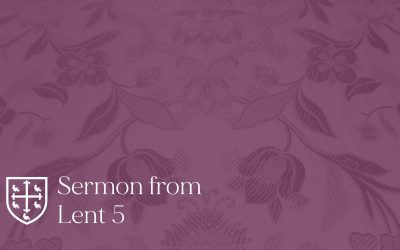6 Easter Year A 5/14/2023
Acts 17:22-31; Psalm 66:7-18; 1 Peter 3:13-22; John 14:15-21
Rev. Mark A. Lafler
On Friday I was taking my morning walk in our neighborhood…
Praying and thinking about many things…
As I normally do…
And suddenly I was overcome by an emotion of joy…
As I contemplated the good news of the Gospel…
I had a sense of how truly good the good news of Jesus Christ is.
The Gospel.
It truly is a joy to consider the grace of Jesus Christ.
We Christians…
The people of God should be so full of joy.
It truly is amazing what God has done through his only begotten Son, Jesus Christ.
Just contemplate the mystery of our faith:
Christ had died.
Christ is risen.
Christ will come again.
That right there should get us going!
What great news!
In his death he has destroyed death.
In his resurrection he has made a way for us to be with him forever.
In his coming again he will make all things right.
There is no greater message than that!
This is the good news!
That Christ Jesus has overcome the world.
He has overcome sin and death.
He is making all things new.
(Revelation 21.5)
There is no greater hope than the good news of Jesus Christ.
No matter what you compare in this world to the hope of Jesus Christ…
Everything falls short.
So short.
Not even comparable.
So, as we consider the things of this world…
May we hold fast…
as the author of the book of Hebrews writes:
Let us hold unswervingly to the hope we profess,
for he who promised is faithful.
(Hebrews 10.23)
In our reading from the book of Acts today…
St. Paul is an example of one holding this hope…
And also, being so full of the joy of Jesus Christ…
Because of the power of the Gospel…
The Apostle Paul travelled throughout the Roman Empire sharing the message of the good news of Jesus.
The second half of the book of Acts tells of his travels.
He went to Roman colonies and Greek cities, usually finding the local synagogue (a Jewish place of worship) to proclaim this good news.
In our reading today he was in the city of Athens.
In Paul’s day it was no longer the political powerhouse it once was due to the Roman Empire’s dominance and stature.
But it still contained the highest level of culture in classical antiquity.
They had the sculptures, the literature… and of course the philosophy.
Athens was the native home Socrates and Plato…
It was the adopted home of Aristotle, Epicurus, and Zeno.
Because of all this prestige…
The Romans gave Athens the right to maintain her own institutions and remain free as an allied city with the Roman Empire.[1]
So, when Paul arrived in Athens he came into an intellectual powerhouse.
And yet, even here the gospel of Jesus Christ was valid.
The same goes for today…
All the prestige of our time…
All the intellectually elite places of today…
Even the most technological advanced places…
Need the good news of the Gospel.
When Paul spoke, he connected with the people.
He spoke to where they were at.
He found a way to present the Gospel.
Finding an altar that was dedicated to an unknown god …
Paul connected this to the God of Israel…
The living God of Abraham, Isaac, and Jacob.
That is the one true God…
The creator of all things.
He connects with them further by quoting two of their poets.
Epimenides the Cretan (600 BC) who wrote:
In thee we live and move and have our being
As well as by another poet, Aratus (310 BC) who wrote:
For we truly are his offspring
Both poems refer to Zeus.
Now Paul is not making the connection that the Christian God is just a form of Zeus.
As if it were some pluralistic hodge podge.
Neither is he saying that we are all God’s people in some pantheistic sense.
He is referring to the biblical doctrine of creation and that all people are created in the image of God.
And from there he calls on them to change their ways…
As this true God that Paul professes… is calling on people to repent.
And then he points to the crux of the hope of our faith:
The Resurrection of Jesus Christ.
Paul says that the assurance to all of us…
The promise of God is in the fact that God raised Jesus from the dead.
He placed emphasis on the resurrection of Jesus.
Now, Paul’s declaration of Jesus Christ had mixed results.
The verses that follow his preaching say this:
When they heard about the resurrection of the dead,
some of them sneered,
but others said, “We want to hear you again on this subject.”
At that, Paul left the Council.
Some of the people became followers of Paul and believed.
Among them was Dionysius, a member of the Areopagus,
also a woman named Damaris,
and a number of others.
(Acts 17.32-34)
Some believed…
Some did not.
But Paul was faithful to share.
In like fashion, Paul did what St. Peter wrote about in our second reading today.
In the letter of Peter, he wrote:
Always be ready to make your defense to anyone who demands from you an accounting for the hope that is in you;
yet do it with gentleness and reverence.
Paul wasn’t looking for a fight.
He wasn’t looking for a quarrel.
He didn’t post on social media:
My God is the best, and your beliefs are trash.
He did though boldly declare what we as Christians believe and he shared the good news of Jesus Christ.
St. Peter said to share our faith with gentleness and respect.
Something we would all do well to adhere to.
We are to proclaim Christ crucified and to point toward the hope of the resurrection.
If we suffer for it, that too is part of our witness.
Paul was obedient to declare the good news.
The joy that we have received in the death and resurrection of Christ is a declaration that we continue to share today.
As baptized believers it is part of our Baptismal Covenant.
This is our calling.
This is our belief and mission.
In the Baptismal Covenant we are asked:
Will you proclaim by word and example the Good News of God in Christ?
And the response is:
Perhaps, but as long as it doesn’t make me feel uncomfortable.
No… the response is:
I will, with God’s help.
We are to proclaim, joyfully proclaim the Good News of God in Christ Jesus.
And this is one of the main points of our gathering today, too.
We often think of church as the place we gather for worship.
And it is that.
We gather on the Lord’s Day to glorify God, together.
But there should be an outcome of this gathering.
Many of us may point toward the prayers as our favorite part.
Or maybe the singing or the community connection.
Perhaps the readings and declaration of God’s word.
Still, many come because of the sacrament of communion.
Others for confession and absolution.
All of these are important and necessary parts of our gathering of worship.
But the primary outcome is still something different.
You see…
It actually is wrapped up, shall we say embodied,
in the role the deacon plays in the worship liturgy.
Deacons are not junior priests.
They are not assistants to the rector.
Deacons are clergy persons, as are priests, but their calling and role in the church is very different than the calling and role of a priest.
You can read more about these differences in the BCP.
But for our purposes today think about who gets the last words in our liturgy.
It is the deacon and then the people.
Usually with the words… Something like this is said by the deacon:
Let us go forth into the world, rejoicing in the power of the Spirit.
And the people respond:
Thanks be to God.
You see one of the primary roles of a deacon is to lead the church into the world to proclaim the good news of Jesus Christ.
Let me for a moment decode the liturgical dismissal.
The deacon says:
Alright church!
So now that we have heard the readings of God’s word…
We have heard the preaching of the Gospel.
We have sung praises to our God.
We have prayed.
We have confessed our sins and received absolution.
We have eaten the body of our Lord…
We have sipped from the cup.
Receiving the great sacrament!
Now that we have been built up, prayed up, and strengthened with our brothers and sisters in Christ Jesus …
Let us go forth into the world, rejoicing in the power of the Spirit…
Declaring the good news of the Gospel of Jesus Christ.
Alleluia! Alleluia!
And the people respond…
Thanks be to God!
Alleluia! Alleluia!
And the Deacon says:
Alright! Let’s go!
Follow me… I know just where the Gospel is needed!
That is what is said in liturgical form.
And that is our lesson for today.
So, following our reading from the book of Acts where St. Paul preached the good news.
Following our reading from 1 Peter where St. Peter said to share the good news in gentleness and respect.
May we go into this world…
Proclaiming the good news of Jesus Christ.
Let the joy of the Gospel …
through the power of the Holy Spirit …
fill you today …
so that you can share this good news …
in the places you go in this world.
Praise be to God!
Alleluia! Alleluia!
Amen.
[1] F. F. Bruce, The Book of Acts (Grand Rapids: Eerdmans, 1988), 329.



